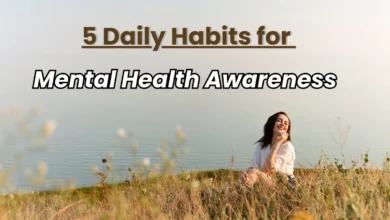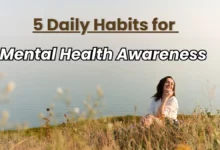Emotional Exhaustion Symptoms and How to Recover Fast

Introduction
Ever felt like your brain has run a marathon, but your body barely moved? That’s not just tiredness—it could be emotional exhaustion creeping in. That’s not just tiredness—it might be emotional exhaustion. This type of fatigue goes beyond needing sleep; it drains your joy, focus, and even your sense of self. Recognizing emotional exhaustion symptoms early can help prevent burnout before it takes over.
In this blog, we’ll gently unpack the signs, causes, and solutions for emotional exhaustion, helping you find your way back to balance.
What Is Emotional Exhaustion?
Emotional exhaustion is the state of feeling emotionally worn out and mentally drained due to prolonged stress. It doesn’t hit all at once. Instead, it builds up slowly, often unnoticed—until even daily tasks feel like climbing a mountain with no summit in sight.
Although it often overlaps with stress and burnout, emotional exhaustion stands out because it impacts your emotional resilience and ability to cope. Over time, it can make everything feel heavy—even the small stuff.
Emotional Exhaustion Symptoms You Shouldn’t Ignore
Let’s explore the most common symptoms. While these can vary from person to person, they often follow a similar pattern:
1. Feeling Constantly Irritated
Even minor inconveniences can make you snap. First, you may feel like your patience is paper-thin, and your fuse is much shorter than usual.
2. Motivation Disappears
Tasks that once felt manageable now seem like a burden. Then, everything starts to feel like “too much”—whether it’s work, hobbies, or even catching up with a friend.
3. Sleep Doesn’t Reboot You
Even after a full night’s sleep, you wake up foggy. Rest doesn’t feel restful. It’s as if your emotional battery never recharges.

4. Trouble Concentrating
Focus becomes a constant battle. You start forgetting things, missing deadlines, or spacing out during conversations.
5. Emotional Numbness
Instead of feeling overwhelmed, you feel nothing. Your emotions are dulled. Joy, sadness, and excitement become distant concepts.
6. Physical Discomfort
For starters, muscle tension, headaches, and digestive issues may show up—because your body often speaks when your emotions stay silent.
7. Withdrawal from Social Circles
Over time, you might find yourself avoiding calls, canceling plans, and preferring solitude—not for peace, but because even small interactions feel emotionally draining.These behaviors are classic signs of being emotionally drained—one of the core symptoms of emotional exhaustion that often go unnoticed.
Together, these symptoms pile up and act as loud signals that your mind needs care.
“You can’t pour from an empty cup. Take care of yourself first.”
Why Emotional Exhaustion Symptoms Develop?
This condition doesn’t show up overnight. It’s usually a product of consistent stress or emotional overload. Many people don’t realize they’re experiencing emotional exhaustion symptoms until daily life feels like an uphill battle.
1. Chronic Work Pressure
Working long hours, tight deadlines, or dealing with a toxic environment? These factors slowly wear down your emotional resilience.
2. Caregiver Burnout
In many cases, constantly putting others’ needs before your own—whether as a parent, nurse, or emotional supporter—can quietly drain all your energy reserves.
3. Trauma’s Emotional Impact
Unresolved emotional pain can keep your nervous system in a constant state of alertness, leaving you emotionally fried.
4. Boundaries & Emotional Drain
Always saying yes? Without limits, emotional resources get stretched thin. Boundaries protect your mental energy.
5. Living in “Survival Mode”
When you’re constantly in fight-or-flight mode, your body and brain never get to rest. Eventually, that catches up with you.
Understanding the cause is the first step to choosing the right kind of healing.
Recovering from Emotional Exhaustion Symptoms
Recovery doesn’t mean fixing everything overnight. It’s about creating consistent, small habits that allow healing to begin.
1. Spot the Symptoms
Call it what it is: emotional exhaustion. Acknowledging it reduces shame and gives you clarity.
2. Rest to Ease Emotional Exhaustion Symptoms
Rest isn’t just sleep—it’s about reducing mental clutter. Try mindful breathing, reading, or doing absolutely nothing for a few minutes.
3. Productivity & Burnout
You are not a machine. Doing less isn’t lazy—it’s wise. Let go of the pressure to “do it all.”
4. Gentle Movement for Burnout Relief
Light physical activity, like stretching or walking, can release tension. Movement helps regulate emotional energy.

5. Nutrition for Emotional Recovery
Whole foods, hydration, and balanced meals impact emotional well-being. Food can be fuel and comfort.
6.Talk It Out to Ease Emotional Burnout
You don’t have to go it alone. Therapy or even venting to a friend can lighten the load you’ve been silently carrying.
7. Create Emotional Boundaries
Limit exposure to draining people or media. Choose what and who gets your emotional energy. Protecting your boundaries can help reduce mental fatigue and improve how you respond to emotional stressors.
Healing looks different for everyone. However, it always starts with listening to your needs and identifying your emotional exhaustion symptoms before they spiral.
Final Thoughts on Emotional Exhaustion Recovery
Emotional exhaustion is more than just being tired. It’s your system’s way of saying: “Something needs to change.” “You’re not lazy or broken—just out of emotional fuel. And that’s something you can refill, step by step.”
Instead, recognize the signs early and respond with compassion. That way, recovery becomes not just possible—it becomes your reality. Take small steps. Rest when needed. And remind yourself: you deserve peace.
“Sometimes, the most productive thing you can do is rest.” — Mark Black
You don’t have to wait until burnout breaks you. Start healing today, one deep breath at a time.










Can you be more specific about the content of your article? After reading it, I still have some doubts. Hope you can help me. https://www.binance.info/register?ref=IXBIAFVY
Bancaxeng, hey! I’ve checked it out, pretty solid. Gameplay is smooth, and I had some decent luck. Definitely worth a look if you’re trying your hand at something new. Check it out here: bancaxeng
I don’t think the title of your article matches the content lol. Just kidding, mainly because I had some doubts after reading the article.
Thanks for sharing. I read many of your blog posts, cool, your blog is very good. https://accounts.binance.com/pt-BR/register-person?ref=GJY4VW8W
Thank you for your sharing. I am worried that I lack creative ideas. It is your article that makes me full of hope. Thank you. But, I have a question, can you help me?
I don’t think the title of your article matches the content lol. Just kidding, mainly because I had some doubts after reading the article.
Can you be more specific about the content of your article? After reading it, I still have some doubts. Hope you can help me. https://accounts.binance.com/da-DK/register-person?ref=V3MG69RO
Thank you for your sharing. I am worried that I lack creative ideas. It is your article that makes me full of hope. Thank you. But, I have a question, can you help me?
Superb blog! Do you have any tips and hints for aspiring writers? I’m hoping to start my own website soon but I’m a little lost on everything. Would you advise starting with a free platform like WordPress or go for a paid option? There are so many options out there that I’m totally confused .. Any suggestions? Thanks a lot!
**back biome official**
Mitolyn is a carefully developed, plant-based formula created to help support metabolic efficiency and encourage healthy, lasting weight management.